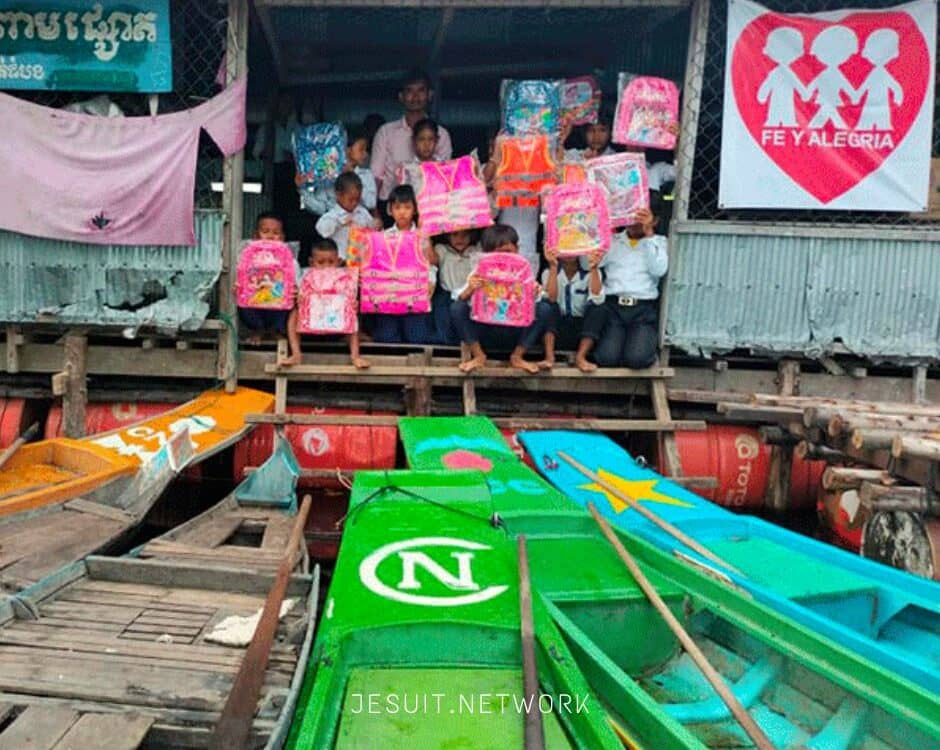This website uses cookies so that we can provide you with the best user experience possible. Cookie information is stored in your browser and performs functions such as recognising you when you return to our website and helping our team to understand which sections of the website you find most interesting and useful.
The Umbrella Revolution: Social Action in a Digital Age
All of us can remember the powerful pictures of The Night of the Smartphones, with thousands of people with their digital screens lighting up the night. Through those smartphones they were talking with millions of people from around the world.
There is much to learn here about how digital resources can enrich and transform social action.
We can sum things up in ten points:
1) A genuinely global community. Through social networks, the number of demonstrators was constantly and exponentially increasing. The Umbrella Movement was “digitalized”: communicated to millions of citizens around the world, who then joined in. The activists in Hong Kong were connected to a huge multitude of people, leading to parallel demonstrations in different cities in Asia, Europe and America.
2) Knowledge creation. That global community of protest enabled a vast amount of people to learn what the Umbrella Revolution was all about. It played a crucial role in forming world public opinion. The activists and their partners were generating news reports, opinion columns, ideas, analyses; people were even working together on a Wikipedia article. In a whole variety of ways, knowledge was being created—collaboratively, in freedom, democratically.
3) Conversation and cultural co-creation. Though the roots of the Umbrella revolution are Christian, what it mobilizes is far wider. As the message of the Occupation spread, everyone recreates it out of their culture, tradition, and aesthetic identity. This cultural mixing, this co-creation from every primary community, is itself something of important universal significance. Digitalization doesn’t level down the diversity of cultures; digitalization enables cultural conversation. Digitalization is not standardization; digitalization is inclusive pluralism.
4) P2P. With digital activism, your commitment is not just to a cause, in the abstract and in general. Digital activism makes you interact with other individuals. You can read their blogs and tweets; you can hear and see them on YouTube. You can support them personally. Digital activism combines the wide reach of mass media with the closeness of individual contact.
5) The Commons. The Umbrella Revolution was lived on the streets. Those involved needed resources, an infrastructure, food, facilities, services, etc. They built and self-managed a community city inside the hyper-capitalist city. They built a city of commons. Even when the Hong Kong authorities shut down the wifi and the access to social media, one of the movement’s foreign supporters created and shared software that opened them up again.
6) Inclusion. The Umbrella community was inclusive, intergenerational, and universal. There were no borders: they tried to engage everybody –even policemen—in a project for the good of all. Digitalism is essentially inclusive.
7) Celebration. The Umbrella Revolution expressed itself not only through documents but also through Social Art. There was a public place where you could communicate through electronic post-its; there was a big projector showing various messages, pictures, inspirational quotations and the like. There were logos and symbols like the Umbrella Man: a big statue made out of wooden materials. All this helped develop an emotional collective intelligence, something transcending the merely factual or political.
8) Holistic. Quite uniquely, the Hong Kong demonstrators studied on the streets, doing their school and university homework. Some of them were offering learning support in statistics, history, and other subjects. They were ecological: they recycled their waste. They were civic: they kept off the grass and they cleaned up after themselves. They were peacemakers: they invoked love. They defined their mobilization as a “demonstration with peace and love”.
9) Creativity and self-management. The demonstrators in effect built a city collaboratively. Their achievement was remarkable for its creativity, transparency, participation and democratic governance.
10) Digital identity. Digital tools were not just resources that the young Umbrella activists used. Digital smartphones were a symbol of their generational identity.
All of these elements helped to contribute to a movement that had the capacity to inspire creativity and social transformation. We invite you to share your ideas of how digital social action has had an impact and motivated change in your school, institution or community.
This post is an excerpt from the article “Are international volunteers digital swallows? The impact of digital social work on international volunteerism” written by Fernando Vidal.
Photo via Flickr





